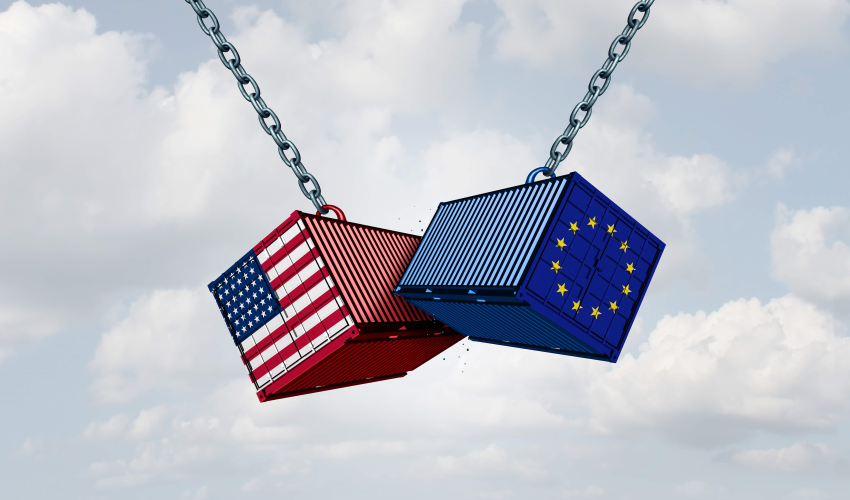
When International Trade Increases the Chance of Conflict
PEACE AND PROSPERITY, YES, BUT NOT ONLY. THIS IS EXPLAINED IN A PAPER BY KERIM CAN KAVAKLIInternational trade is associated with peace and prosperity, but it comes with a hidden risk: it facilitates conflict under certain circumstances. Kerim Can Kavakli, assistant professor at the Department of Social and Political Sciences, came to this conclusion using a very detailed commodity-level trade database from 1962 to 2000.
“Political scientists have not previously used this database in this strand of research”, he notes. Professor Kavakli and his co-author, J. Tyson Chatagnier, looked at every country’s export portfolio along nearly 1,300 commodity categories. For every country pair they created a measurement that indicates the extent to which they are competitors in the international market. “We found out that countries that sell similar goods to the global market are more likely to fight with each other. In this case, the chance of engaging in some kind of conflict goes up from 10% to 25%”. It happens regardless of the form of government, political culture, balance of power, geographical proximity, economic development level, or bilateral trading ties.
Moreover, Professors Kavakli and Chatagnier found that the effect is even stronger for manufactured goods than raw goods (e.g. agriculture and mining). They think that the effect is mostly driven by domestic special interests groups. These lobbies influence their nation’s political elites and use foreign policy to gain an economic advantage in the international market. They reap the benefits of military competition and put the cost upon their country. Is this a cautionary tale about the dangers of globalization?
“Literature has shown the pacifying effects of commerce upon pairs of states. The conventional wisdom says that the economic integration of China is making it more peaceful. Our paper shows that it may increase the risk of conflict with countries that sell similar goods to the global market”.
​Read more about this topic:
Massimo Marinacci. Understanding Risk in Companies and Our Lives
The Real Trouble Starts When We Think We Can Calculate Everything
Corporate Governance Is not Safe from Black Swans
A Bridge Where Decision Theory Meets Risk Analysis
Policy Makers React to Ambiguity Like Other Humans Do
No Economic System Is Safe. Shocks Travel Quickly and Unexpectedly
With the Monte Carlo simulations, an epochal revolution in the probabilistic risk assessment of business plans has arrived
How to Make Your Non-performing Loans Harmless
New Sanitation System Can Half Healthcare Associated Infections and Reduce Related Costs by 75%
by Claudio Todesco
